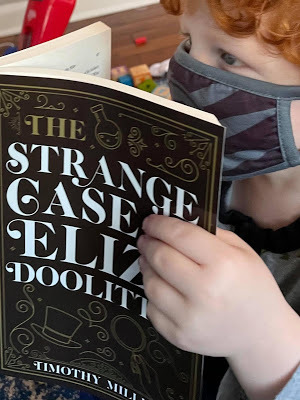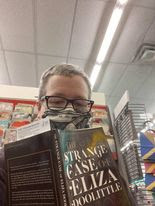Timothy Miller's Blog, page 24
March 24, 2021
Homage
By the way, there are two vehicles which figure prominently in The Strange Case of Eliza Doolittle: Morello's Moreau-Lepton, and the Widgeon Seven which Holmes commandeers late in the action. If you are a stickler for historical detail, you might try to get a peek at one of these autos online. Alas, you will find no pictures of either. They never existed. Well, they did exist. But only in literature.
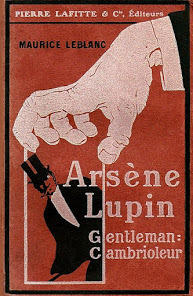
"Ah! I must confess that in rolling over the boulevards that surrounded the old Norman city, in my swift thirty-five horse-power Moreau-Lepton, I experienced a deep feeling of pride, and the motor responded, sympathetically to my desires."
"Well, you may say that sacking, considered in the light of a bed, isn't everybody's money, and in saying so you would be perfectly correct. But after half an hour in the seat of a Widgeon Seven, even sacking begins to look pretty good to you."
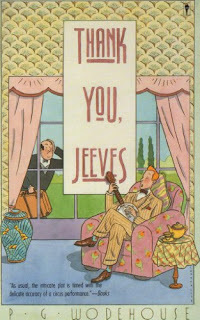
You see, the Moreau Lepton was the car of famed burglar Arsene Lupin, while the Widgeon Seven was the two-seater so beloved of famed fat-head Bertie Wooster. The two cars existed only in the imaginations of authors Maurice LeBlanc and P.G. Wodehouse, whom I wanted to give a nod to, and so continue the proud tradition of fictional automobiles.
March 23, 2021
Graves
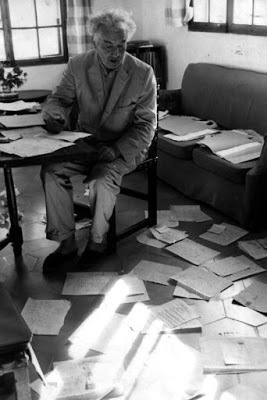
The Devil’s Advice to Storytellers
Lest men suspect your tale to be untrue, Keep probability – some say – in view. But my advice to story-tellers is: Weigh out no gross of probabilities, Nor yet make diligent transcriptions of Known instances of virtue, crime or love. To forge a picture that will pass for true, Do conscientiously what liars do – Born liars, not the lesser sort that raid The mouths of others for their stock-in-trade: Assemble, first, all casual bits and scraps That may shake down into a world perhaps; People this world, by chance created so, With random persons whom you do not know – The teashop sort, or travellers in a train Seen once, guessed idly at, not seen again; Let the erratic course they steer surprise Their own and your own and your readers’ eyes; Sigh then, or frown, but leave (as in despair) Motive and end and moral in the air; Nice contradiction between fact and fact Will make the whole read human and exact. —Robert Graves
Auberge Ravoux

In this picture, Ravoux and his daughter Adeline are on the left. Madame Ravoux and daughter Germaine stand in the doorway.

--The Strange Case of the Dutch Painter
March 22, 2021
Reader's Club
Sondheim
Happy 85th birthday, Stephen Sondheim!

"The worst thing you can do is censor yourself as the pencil hits the paper. You must not edit until you get it all on paper. If you can put everything down, stream-of-consciousness, you'll do yourself a service."
March 21, 2021
Eliza and Nora
If you're looking for the magical happy ending from My Fair Lady, you won't find it in my novel. Nor will you find it in Shaw's original play, Pygmalion. Instead you will find this:
"This is where the play gets interesting. Once Higgins wins his bet and completes Eliza’s transformation, she is stuck between two worlds. She can’t to go back to selling flowers and she doesn’t want to be Higgins’ secretary — or worse, his wife. At the end of the play, after an enormous battle of wills, Eliza decides to strike out on her own. “If I can’t have kindness, I’ll have independence,” she declares.
Then, according to Shaw’s final stage directions, Eliza "sweeps out."
This is from an excellent article from The World, which I link to here, because it explains far better than I can. But think of Pygmalion as Shaw's version of Ibsen's A Doll's House. At the end of that play, Nora slams out the door: the slam heard round the world. Now imagine that Nora had come back in the door and given Torvald a big romantic kiss. You'd have never heard of A Doll's House.
But in Shaw's case, everyone conspired against him. The actors, the director of the movie version, and certainly the producers of My Fair Lady, to soften the blow. Think of Eliza's last words in the film before the ending:
"Goodbye, Professor Higgins. You shall not be seeing me again."
Now that is Shaw's sentiment. But Lerner and Loewe had a killer song up there sleeve and a shlocky, if winning, romantic ending to tag on, which directly denies Shaw.
Now, in the ending of my novel...you don't really think I'm going to tell you the ending, do you? To paraphrase Eliza,
"What a fool, I'be, what an addle-pated fool."
Welty

–Eudora Welty
March 20, 2021
Pastiches
I'm going to share a secret with you: I don’t read Sherlock Holmes pastiches. Or at least, very few. And the better they promise to be, the leerier I am of them. Not that I’m saying you shouldn’t read pastiches. What do you, think I’m crazy? No, remember I’m a writer, not a reader. Not that writers shouldn’t read pastiches. Far from it. I’m pointing the finger squarely at myself. You see, I’m a sponge. I’m a mimic. I’m very strongly affected by the last thing I’ve read. If I had been reading Dylan Thomas while I was writing The Strange Curse of Eliza Doolittle, I’d have had to name it Eliza’s Christmas in Wales.
So I didn’t. I stuck to a steady diet of John Watson, M.D., with Pygmalion for dessert. A little taste:
Toby, of course, had long since joined his lop-eared dewlapped ancestors in the next life. Rather amazingly, Mr. Sherman, Toby’s owner, was still rattling along this mortal coil, still stuffing animals, still manning the shop in Pinchin Lane. We hung on his bell till we heard the window on the second floor being wrenched open above us.
“Stand back, Watson,” said Holmes, pulling me aside. Glad I was that he did so; the first thing that came out of the window was a bucket of dirty water, which splashed to the pavement at our feet. The second thing was Sherman’s head in a nightcap.
“Go away!” he yelled. “I’ll have the law on you!”
Well, you say, everybody strives to sound like John Watson. And to that I say, some do, and some don’t. It’s not a matter of good or bad writing, it’s largely a matter of intention. For me, the music is of paramount importance.
And then there’s the matter of edges. The territory a pastiche inhabits is the edges of the Canon. Luckily, Doyle left wide edges to work in. The stories are chock-full of detailed facts, but those facts are always about the case, and almost never about Holmes—or Watson. It’s all those details that a pastiche fills in. For instance, I know that Holmes kicked his
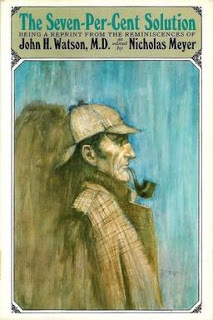 cocaine addiction with the help of Sigmund Freud, because long ago I read the Seven-Per -Cent Solution, by Nicholas Meyers. This was long before I had any intention of writing a Holmes pastiche, before I even heard the word pastiche; as a matter of fact, it was my original inspiration (I’m probably not alone in that).
cocaine addiction with the help of Sigmund Freud, because long ago I read the Seven-Per -Cent Solution, by Nicholas Meyers. This was long before I had any intention of writing a Holmes pastiche, before I even heard the word pastiche; as a matter of fact, it was my original inspiration (I’m probably not alone in that). But the point is, I can’t have that idea, because someone already had it, and executed it brilliantly. The more pastiches, especially good pastiches I read, the narrower the edges become.
So, enjoy the pastiches. Hell, enjoy my pastiches. And I promise, when I move on from writing Sherlock Holmes stories, I’ll catch up on my reading.
The Belgian Masters
"Sherlock Holmes had, in a very remarkable degree, the power of detaching his mind at will. For two hours the strange business in which we had been involved appeared to be forgotten, and he was entirely absorbed in the pictures of the modern Belgian masters. He would talk of nothing but art, of which he had the crudest ideas, from our leaving the gallery until we found ourselves at the Northumberland Hotel."
-- The Hound of the Baskervilles

Jan Verhas (9 January 1834 – 31 October 1896) was a Belgian painter of the Realist school. He wasknown for his portraits and genre paintings often depicting children of the Belgian bourgeoisie.

